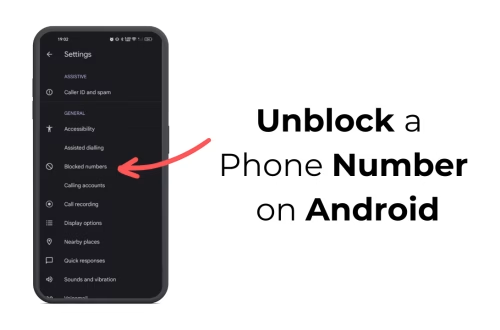Online Speech Regulation in Australia
Summary:
Online Speech Regulation in Australia has become a focal point in debates over freedom of expression, digital rights, and national security. The Australian government has introduced several laws aimed at combating harmful content, misinformation, and cyber abuse while balancing human rights protections. Key legislation, such as the Online Safety Act 2021 and proposed misinformation laws, reflects growing concerns over digital harms. These regulations impact social media platforms, news organizations, and individual users, raising questions about censorship, transparency, and accountability. Understanding these laws is crucial for anyone engaging in online discourse in Australia.
What This Means for You:
- Increased Accountability for Social Media Posts: Australian laws now hold individuals and platforms accountable for harmful content. Defamatory remarks, hate speech, or misinformation could result in legal consequences. Ensure your online communications comply with Australian standards.
- Potential for Overreach and Censorship: While regulations aim to curb harmful content, critics argue they may suppress legitimate speech. Stay informed about your rights and consider using privacy tools like VPNs if concerned about surveillance.
- Reporting Mechanisms and Platform Compliance: Major platforms like Facebook and Twitter must adhere to Australian takedown requests. Familiarize yourself with reporting tools to flag abusive content while advocating for transparent moderation policies.
- Future Outlook or Warning: The regulatory landscape is evolving rapidly, with proposals for stricter misinformation controls and expanded surveillance powers. Watch for legislative updates, as these changes could further restrict online freedoms under the guise of public safety.
Online Speech Regulation in Australia: Key Laws and Compliance in 2024
Current Political Climate and Legal Framework
Australia has taken a proactive stance in regulating online speech, driven by concerns over cyberbullying, extremist content, and foreign interference. The Online Safety Act 2021 empowers the eSafety Commissioner to demand the removal of harmful material, including cyber abuse and child exploitation. Additionally, the proposed Communications Legislation Amendment (Combatting Misinformation and Disinformation) Bill 2023 seeks to penalize platforms for failing to address false information.
Historical Context
Australia’s approach to online speech regulation builds upon earlier laws like the Broadcasting Services Act 1992 and the Criminal Code Amendment (Sharing of Abhorrent Violent Material) Act 2019. The latter was enacted following the Christchurch terrorist attack, requiring platforms to swiftly remove violent content. These laws reflect a broader trend toward increasing government oversight of digital spaces.
Human Rights Implications
While Australia is a signatory to international human rights treaties protecting freedom of expression, its online speech regulations have sparked debate. Critics argue that broad definitions of “harmful content” risk suppressing dissenting opinions. Advocates, however, emphasize the need to balance free speech with protections against abuse and misinformation.
Key Compliance Requirements
Social media platforms operating in Australia must:
- Respond to takedown notices within 24 hours for urgent cases.
- Implement robust content moderation policies.
- Provide transparency reports on government requests.
Challenges and Controversies
The lack of judicial oversight in content removal decisions has raised concerns. Additionally, proposed misinformation laws could disproportionately target marginalized voices under vague definitions. Legal experts warn that overregulation may push harmful content into encrypted or offshore platforms, complicating enforcement.
People Also Ask About:
- Does Australia have strict internet censorship? Australia enforces selective censorship, primarily targeting illegal content (e.g., child abuse, terrorism). However, recent laws expand government powers to regulate misinformation and harmful speech.
- Can I be fined for online posts in Australia? Yes, individuals and platforms can face penalties for defamatory, abusive, or misleading content under laws like the Online Safety Act and proposed misinformation bills.
- How does Australia’s regulation compare to the EU or US? Australia’s approach is more interventionist than the US (which prioritizes free speech under the First Amendment) but aligns somewhat with the EU’s Digital Services Act, though with stricter penalties.
- What rights do I have if my content is removed unfairly? Users can appeal takedowns through platform mechanisms or complain to the eSafety Commissioner, though success rates vary.
Expert Opinion:
The tightening of online speech regulations in Australia reflects global trends toward digital governance but risks unintended consequences. Overly broad laws may stifle public debate while failing to address root causes of harmful content. Users should remain vigilant about their digital rights and advocate for balanced policies that protect both free expression and public safety.
Extra Information:
- eSafety Commissioner – Australia’s regulatory body for online safety, offering resources on compliance and reporting.
- Australian Parliament House – Tracks proposed legislation affecting online speech, including misinformation bills.
Related Key Terms:
- Australia Online Safety Act 2021 compliance
- Freedom of speech laws in Australia
- Australian eSafety Commissioner powers
- Misinformation regulation Australia 2024
- Social media censorship Australia
- Defamation law and online speech Australia
- VPN legality Australia online privacy
*Featured image provided by Dall-E 3





